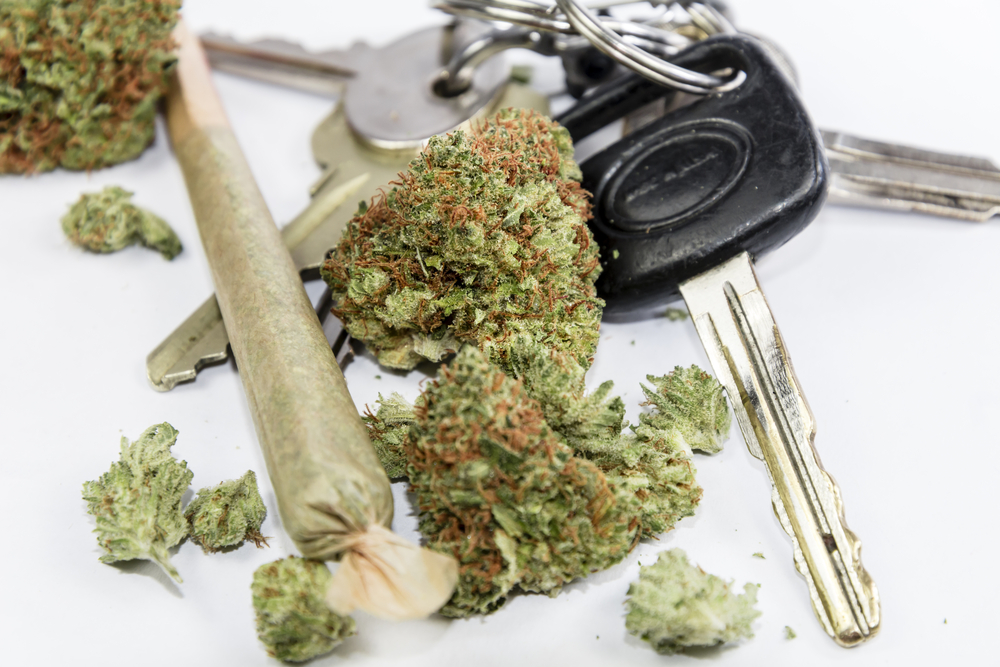Share This Article
ArrayThe Controversy of Drug Driving Laws in NSW
The controversy behind this relatively new law is the unfairness of creating a law that will cause someone to face harsh consequences of a criminal conviction and driver licence disqualification from the mere trace or presence of an illicit drug (such as cannabis)- while there is no evidence that having such a minute trace or presence of it will impair your driving capability.
On the other hand, drink driving offences prohibits someone from driving in NSW with a certain level of alcohol concentration in the blood or breath which fairly reflects the extent of the ability to drive.
Therefore, unlike the current drug driving laws, there is enough research and evidence to show how the level of driving impairment is affected based on the level of alcohol concentration in someone’s body.
While the Government claims that cannabis can be detected with a Mobile Drug Test (MDT) in someone’s saliva for up to twelve hours after use, the experienced views of the Courts in NSW is something completely different, in that people are being convicted for having consumed cannabis for over the twelve-hour period.
In one case a Magistrate accepted a man’s evidence that he smoked cannabis 9-days before he was stopped by police for an MDT when he returned a positive test for cannabis.
While lots of research has been conducted into the impact of drinking alcohol and driving a vehicle, there has been very little research between the impacts of cannabis and driving.
New Study Reveals Cannabis Causes Almost No Driving Impairment
In a first-ever study on whether cannabis impairs driving performance, it is reported to reveal that cannabis causes very little to no impairment to a person’s driving capabilities. However, the study does reveal that any impairment from cannabis on driving performance is so minute that it can be considered similar to that of someone who drives below the legal alcohol limit.
Importantly, the study shows that ‘analysing a driver’s oral fluids can detect recent use of marijuana but is not a reliable measure of impairment.
‘Everyone wants a breathalyser which works for alcohol because alcohol is metabolised in the lungs’ says Andrew Spurgin, A postdoctoral research fellow with the UI College of Pharmacy. ‘But for cannabis this isn’t as simple due to THC’s metabolic and chemical properties.’
It is reported that the study shows that cannabis is in fact a less dangerous substance than alcohol.
In fact, the study conducted at the University of Iowa’s National Advanced Driving Simulator (NADS) discovered that those who drove under the influence of the combined substances of alcohol and marijuana weaved more on a road than those who drove under the influence of either one of those substances alone.
Is Marijuana Legal in Australia?
With Victoria as the first state to introduce laws legalising medicinal cannabis, the following states have also followed in certain circumstances:
- In Victoria, as from 2018, medicinal cannabis can be used for children in severe cases of treatment-resistant epilepsy under the Access to Medicinal Cannabis Act 2016.
- In New South Wales, medicinal cannabis can be used for adults suffering terminal illnesses considered ‘end-of-life illnesses’ under the Poisons and Therapeutic Goods Amendment Regulation 2016. This scheme has been running from 2016.
- In Queensland, medicinal cannabis can be prescribed from specialists for certain patients suffering certain illnesses, including MC, HIV and AIDS, epilepsy under the Public Health (Medicinal Cannabis) Act 2016.
- Northern Territory: certain patients with medical illnesses can access medicine containing cannabinoids in it. This can be accessed in the NT through the Therapeutic Goods Administration.
- South Australia: cannabis for medical purposes can be accessed from doctors under certain circumstances from 2016 under the South Australian Controlled Substances Act 1984.
- Western Australia: medicinal cannabis can be used by certain people suffering certain illnesses. It can be accessed by a doctor since 2016 under the Misuse of Drugs Act 1981.
- Tasmania: Medicinal cannabis can be used for patients through a scheme that commenced from 2017 called the ‘Controlled Access Scheme’. Medical specialists can prescribe it in certain circumstances.
- Australian Capital Territory: certain people suffering illnesses who are categorised into ‘category 6’ of the criteria will have access to use medicinal cannabis (since 2017).
The Penalties for Drug Driving Charges in NSW
The current drug driving laws prohibits someone from driving a motor vehicle on a NSW road with the mere presence of an illicit drug in the saliva, urine or blood pursuant to section 111 of the Road Transport Act (NSW).
Anyone guilty of this offence can face a maximum penalty of a criminal conviction, and either one of the following:
- If you have not received a conviction of a ‘major offence’ within the 5-year period before committing the current offence (which includes drug driving or drink driving): $1,10 fine and/or automatic driver licence disqualification of 6 months (or a discretionary reduction of a minimum of 3 month disqualification if there is a strong enough need for a licence); or
- If you have received a conviction of a ‘major offence’ within the 5-year period before committing the current offence: $2,200 fine and/or an automatic driver licence disqualification period of 12 months (or a discretionary reduction of a minimum of 6-months disqualification if there is a strong enough need for a licence).
For a thorough outline on drug driving charges, see our blog on the penalties and defences for drug driving charges in NSW.
Do you have any questions arising from this blog? Our team attend all courts and are available around the clock to provide advice.
We have criminal lawyers in Wollongong, Penrith, Parramatta and Newcastle.
Book a Lawyer Online
Make a booking to arrange a free consult today.
Call For Free Consultation
Call Now to Speak To a Criminal Defence Lawyer
Over 40 Years Combined Experience
Proven SuccessAustralia-Wide
Experienced LawyerGuarantee
 (02) 8606 2218
(02) 8606 2218
 (02) 8606 2218
(02) 8606 2218















